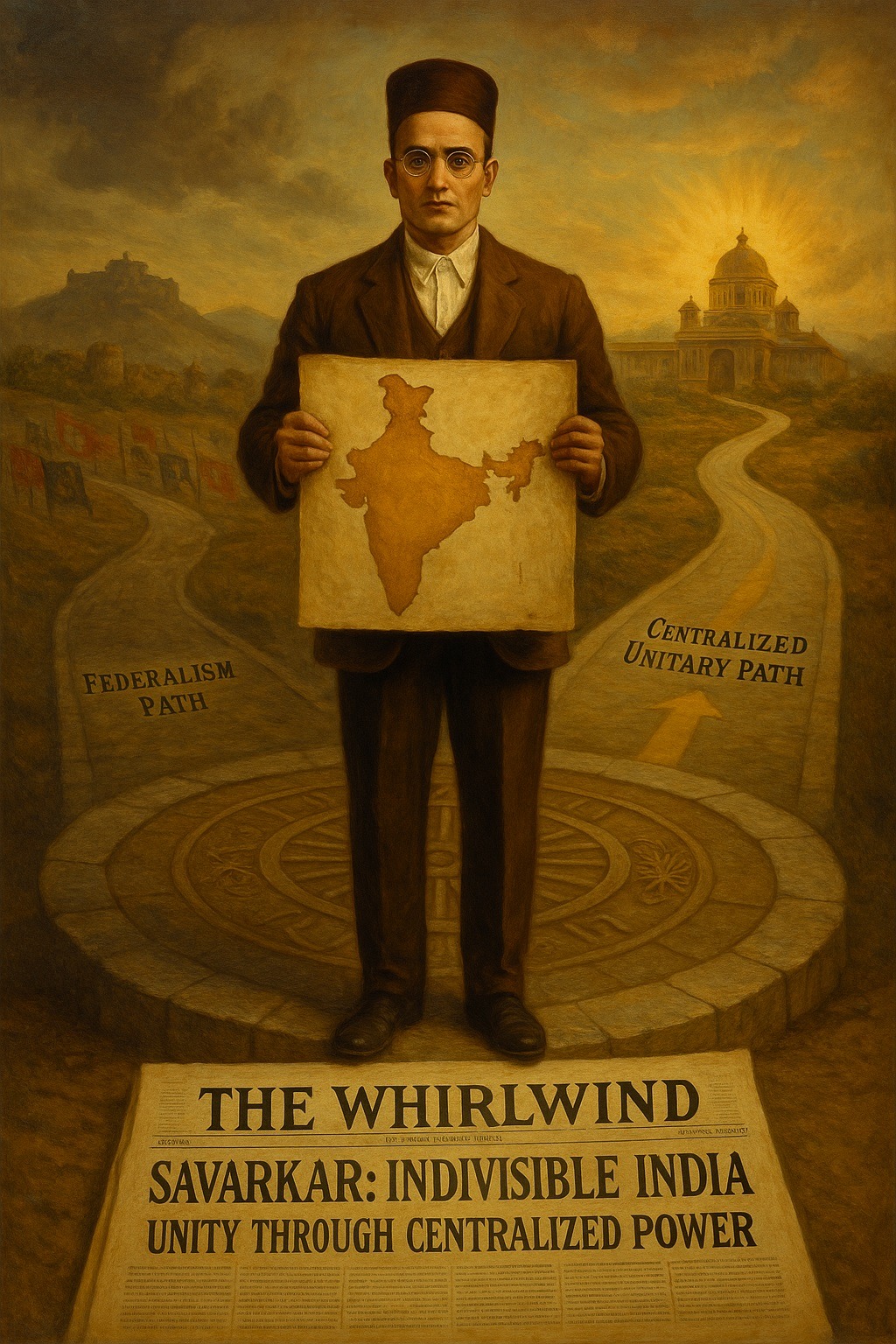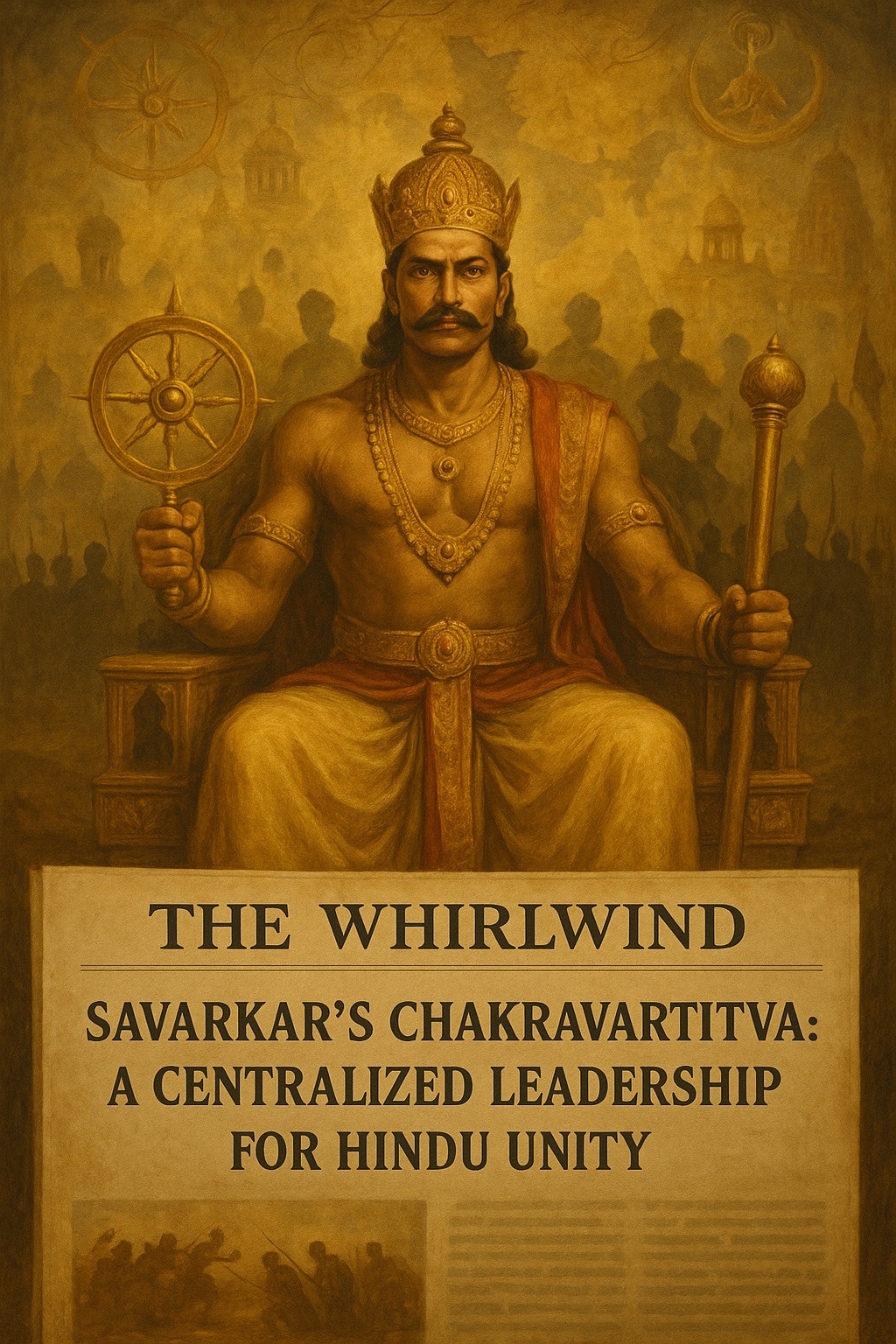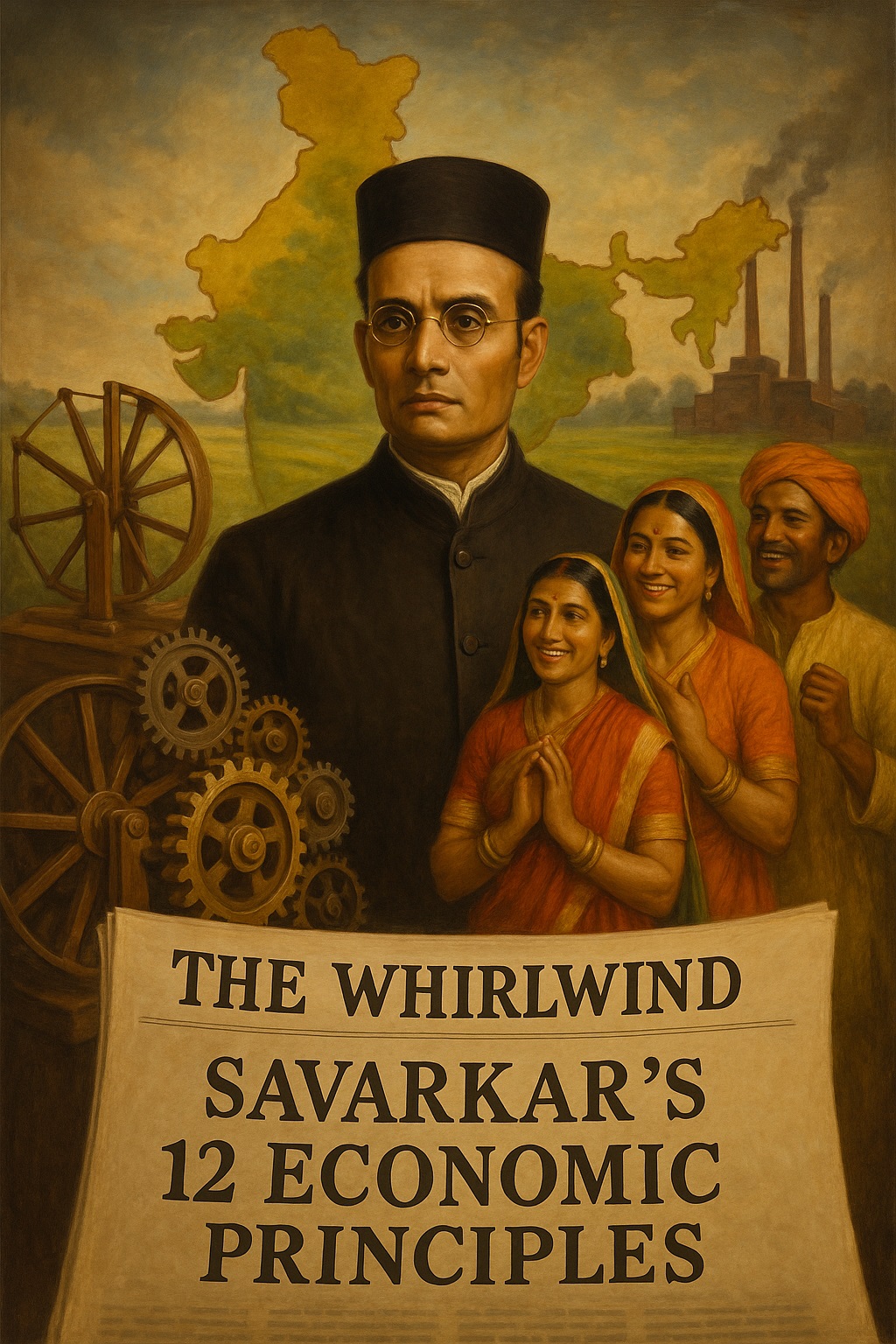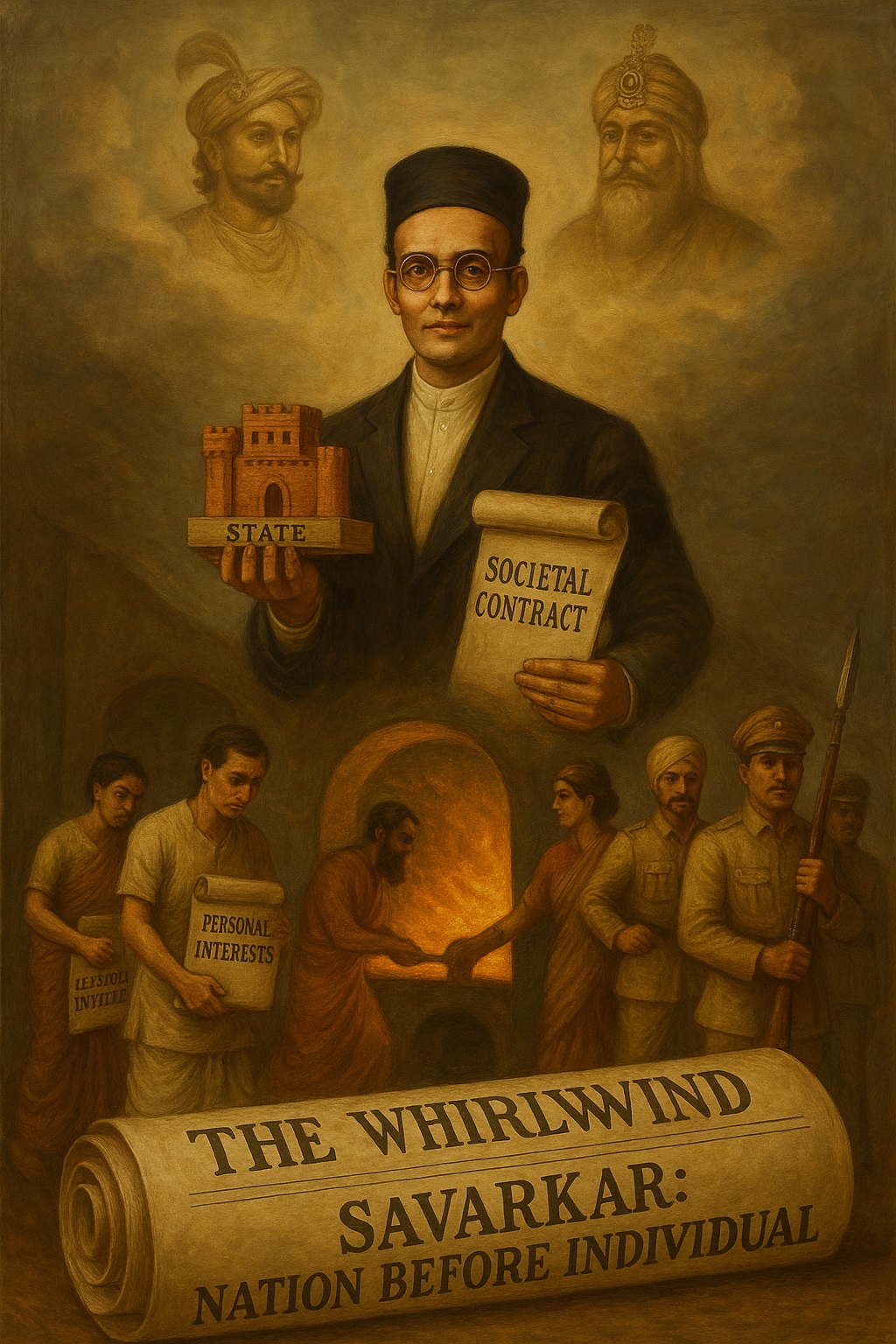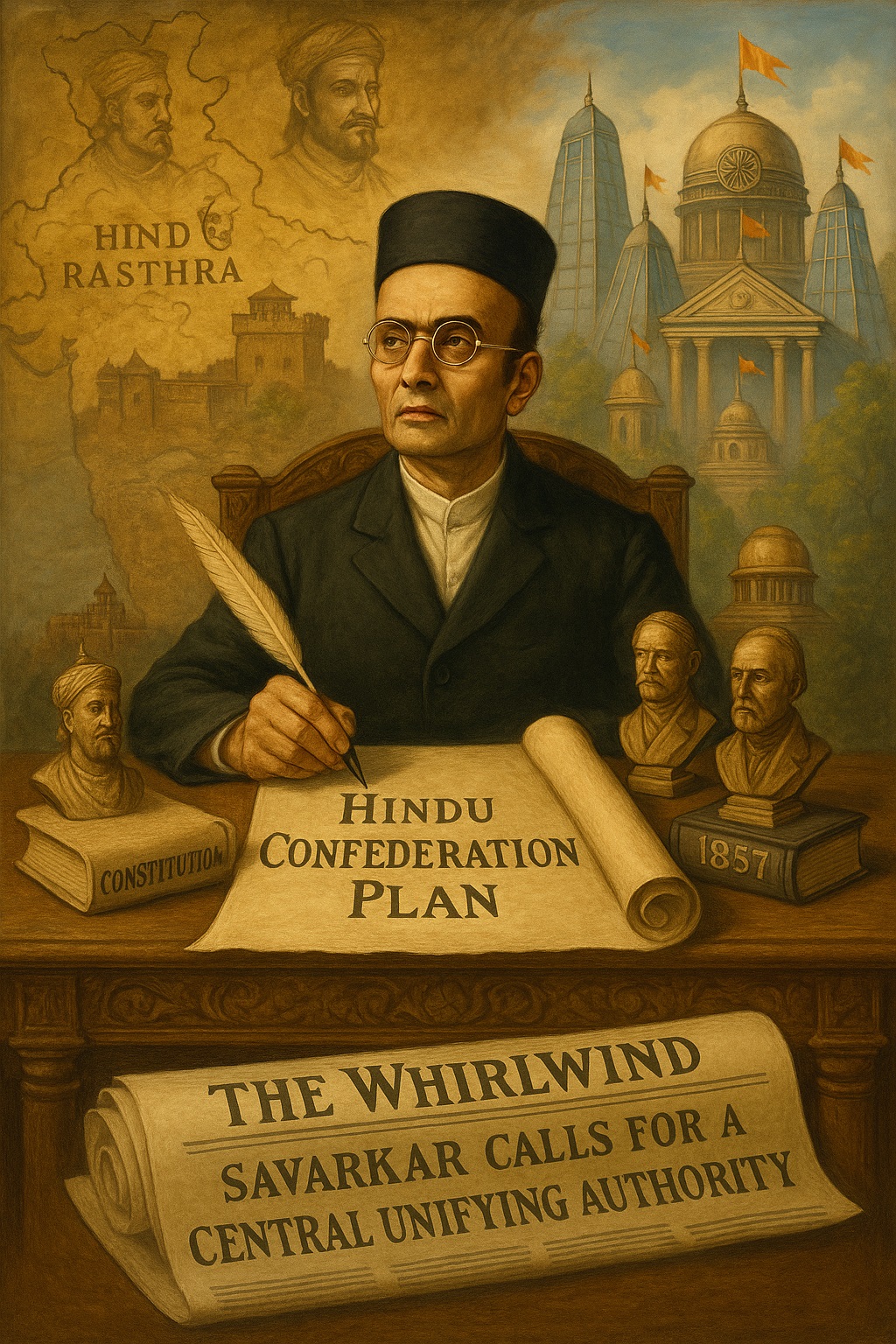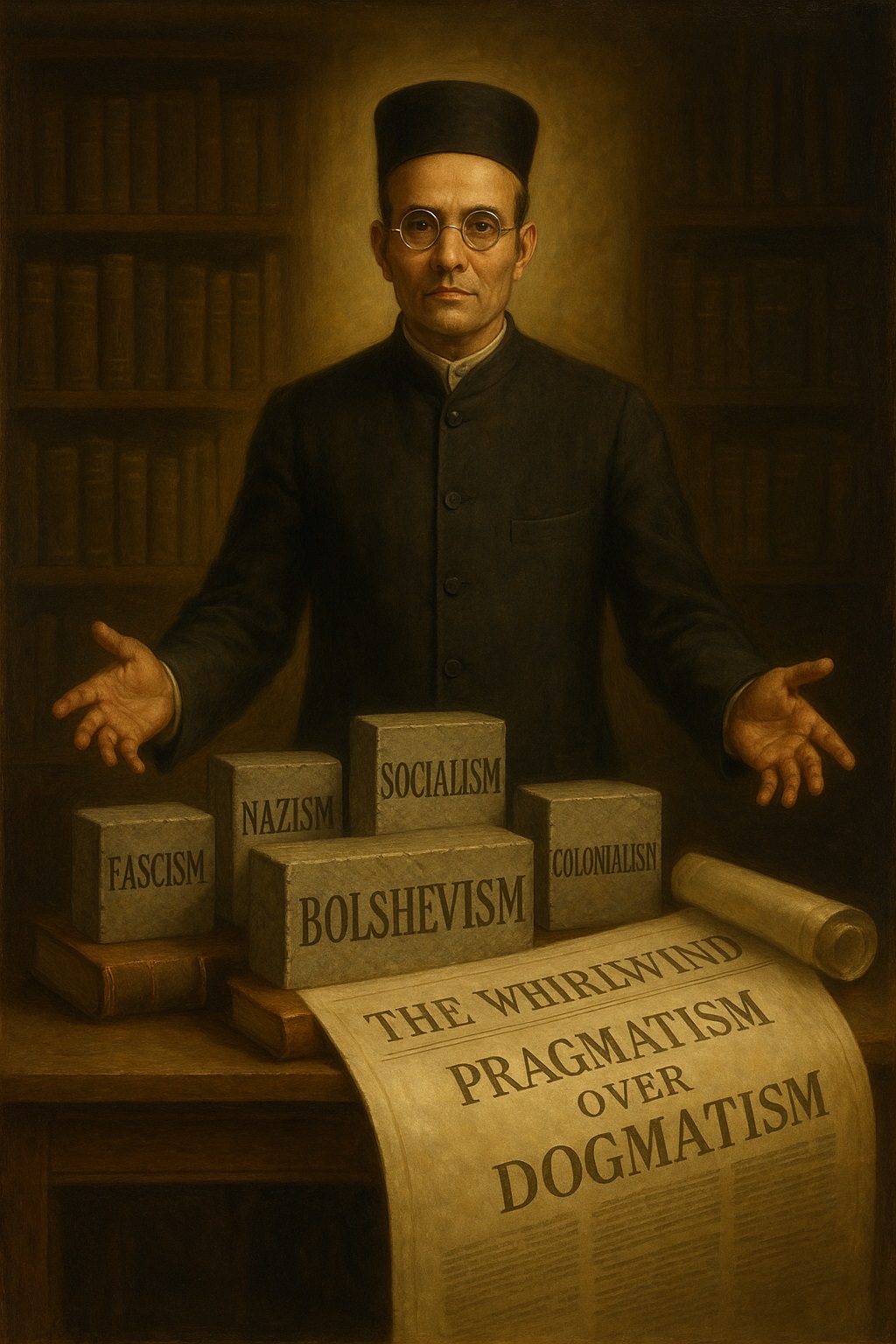Tag: Governance
-
Political Dimension of Hindutva, Part 10 Vinayak Damodar (Veer) Savarkar, a pivotal figure in the Indian independence movement and a proponent of Hindutva, offered a unique and controversial vision of democracy and governance for post-colonial India. His ideas, as encapsulated in his first draft constitution, reflect his belief in an India dominated by a unified…
-
Political Dimension of Hindutva, Part 9 In Vinayak Damodar (Veer) Savarkar’s view, the challenge of preventing particularistic interests has been one of the most significant hurdles both in the struggle for independence and in shaping the post-colonial Indian state. Movements like the Andhra Movement or the alignment of Bengal’s independence struggle with regional interests highlight…
-
Political Dimension of Hindutva, Part 7 Vinayak Damodar (Veer) Savarkar’s political-religious vision is deeply rooted in an archaic worldview. A key element in his concept of an ideal governance structure for Hindus is the idea of “Hindu leadership through a strong hand.” This theme is recurrent throughout his writings, particularly through his admiration of the…
-
Economic Dimension of Hindutva, Part 5; Savarkar’s Economic Principles (1/13) The economic dimension of the Hindutva ideology is often overlooked in discussions dominated by its political and cultural aspects. However, the economic program articulated by Savarkar, particularly through his “12 Principles,” is crucial to understanding his vision for India’s future. These principles were presented during…
-
Political Dimension of Hindutva, Part 5 In his political thought, Vinayak Damodar Savarkar presents a vision that is deeply entwined with the idea of collective identity and the supremacy of the nation. His ideas reflect the notion that individual interests must be subordinated to the common good, especially in the context of a nation striving…
-
Political Dimension of Hindutva, Part 4 When envisioning the future of Hindu Rashtra, Vinayak Damodar Savarkar did not propose a rigid, fixed model of governance. Instead, his ideas evolved within the historical and political context of his time. Rather than outlining a single, comprehensive framework, Savarkar explored various possibilities, ranging from a constitutional monarchy in…
-
Political Dimension of Hindutva, Part 3 One of the most defining aspects of Vinayak Damodar Savarkar’s political and social thought is his categorical rejection of rigid, doctrinal frameworks – whether political or religious (Savarkar 1941:50ff; 1999:52). He distances himself from any ideology or movement that is characterized by the suffix “isms”, believing that such rigid…
-
Political Dimension of Hindutva, Part 2 Vinayak Damodar Savarkar had a political vision that extended far beyond the borders of India. His understanding of politics was not limited to governance within a nation-state but encompassed a broader, global perspective. Central to his political philosophy was the idea of responsive cooperation, a pragmatic approach that balanced…


